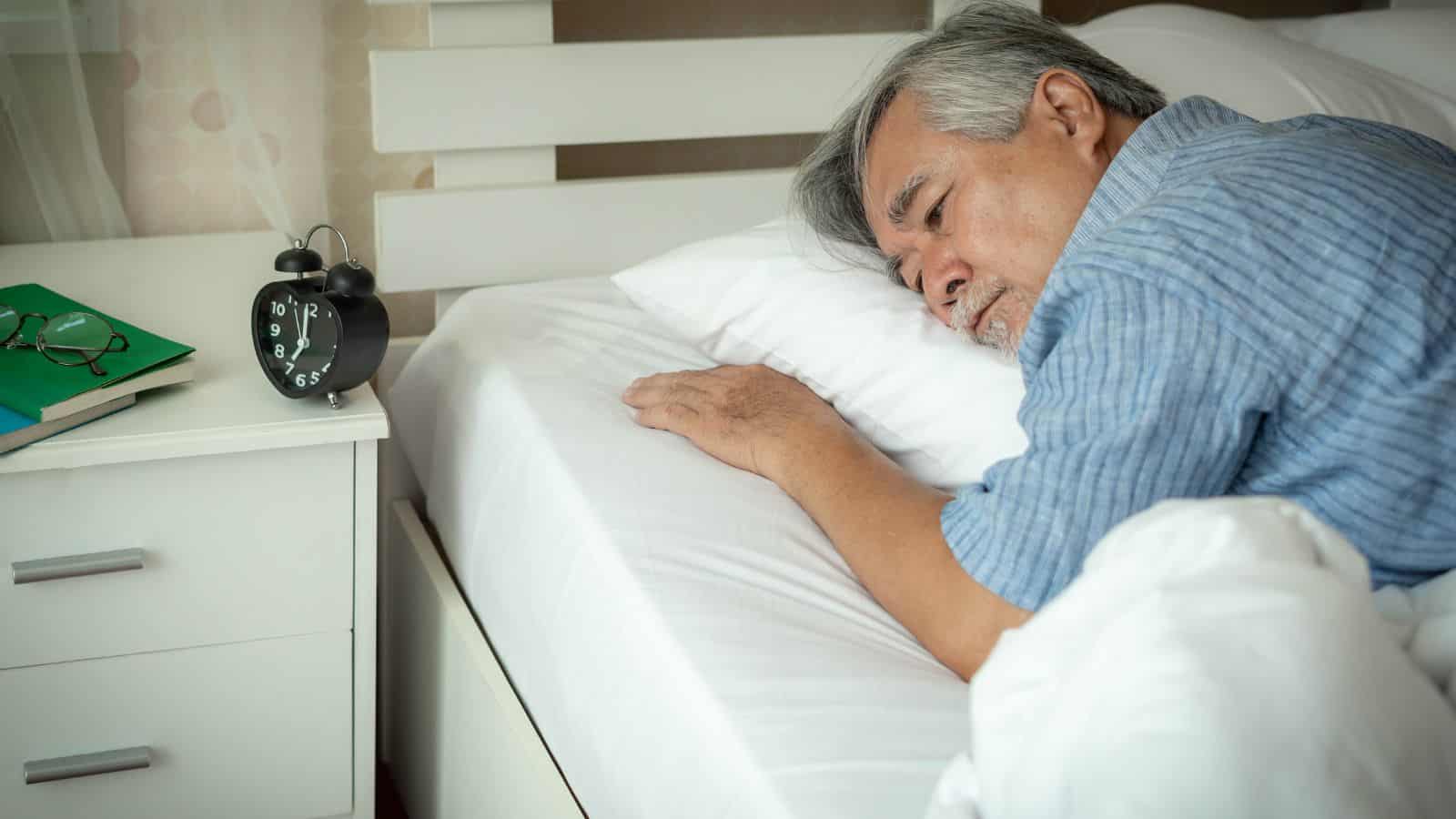After turning 60, there are many things you’re asked not to do to stay healthy mentally, physically, and financially. This can be about your diet, your lifestyle, or even your mindset, just like the following 18 things people over 60 are often told not to do.
Eating a Poor Diet

What you eat determines your weight, strength, energy levels, and overall quality of life, and seniors need healthy proteins, vitamins, and minerals more than ever. Unfortunately, this means you might have to ditch your poor diet, as junk foods are now off the table. You’ll thank yourself later!
Eating Hard Food

While on the topic of food, seniors commonly face problems with chewing and swallowing, so it’s advised to avoid foods that are sharp, hard to chew, or known to be choking hazards. This will prevent dental problems, preserve your jaw’s mobility, and improve your digestion.
Cutting Down on Sleep

Generally, seniors need the same amount of sleep as every other adult, but you’re more susceptible to health issues when you get older. Southwestern University says that some of the related long-term fatal problems include weight gain, high blood pressure, memory problems, and stroke, so it’s time to stop skipping out on sleep!
Smoking Cigarettes

The older we get, the more susceptible we are to smoke-related diseases, so it’s only wise that you quit smoking. When you quit, you lower your risk of cancer, heart attacks, lung diseases, and strokes. You also have better blood circulation and improve your senses of smell and taste.
Not Taking Care of Your Skin

It’s a sad fact of life that our skin becomes old and wrinkly after 60, but if you don’t take care of your skin, you’ll only make this worse! You should moisturize your skin, keep it clean, and, most importantly, protect it from exposure to the sun. Otherwise, you could develop skin cancer.
Consuming Excessive Alcohol

One of the habits you’re told to quickly drop as a senior is alcohol consumption, and there are serious consequences for not doing so. Alcohol leads to cancers, liver damage, and immune disorders and worsens conditions like high blood pressure, diabetes, memory loss, and mood disorders. You don’t need that in your ‘60s!
Neglecting Hydration

An NLM study reveals that seniors have decreased thirst sensation, so it’s easier to neglect drinking water. The catch is that changes in body composition also cause seniors to have a poor water-sodium balance. The result? You are more susceptible to dehydration, so you better become more aware of this in your ‘60s!
Drinking Too Much Coffee

Surprisingly, the caffeine from coffee actually decreases your risk of Alzheimer’s, dementia, Parkinson’s disease, and type 2 diabetes, but only in small amounts. Unhealthy amounts of caffeine can dangerously increase heart rates, interfere with medications, and cause insomnia. Best to limit yourself to one or two cups.
Ignoring Social Interaction

Retirement, health problems, and the loss of peers can push you into isolation at old age. Sadly, social isolation leads to other issues like feelings of loneliness, depression, cognitive decline, and anxiety. So, no matter who you’ve lost over the years, establishing new connections is key to staying mentally healthy.
Delaying Asking for Help

Many seniors love their independence so much that they don’t ask for help, even when it’s readily available. However, failing to reach out worsens feelings of loneliness, and delaying care is associated with poorer health. So, to stay mentally and physically healthy, never feel discouraged from reaching out first.
Dismissing Eye Care

One-third of adults over 55 have one or more eye problems, so don’t ignore eye care, even if you feel as great as ever! With constant checkups, you can easily prevent cataracts, the leading cause of permanent vision loss in the US.
Neglecting Dental Health

If your years of exposure to sugar and other substances haven’t led to tooth decay yet, it’s understandable that you’re lax about your oral health. However, you should understand that old age comes with salivary changes, and you have dryer mouths, making you susceptible to cavities and diabetes. Go see your dentist!
Ignoring Foot Health

Poor foot hygiene puts you at risk of fungal nail infection, which the CDC explains causes nails to crack and break. It doesn’t stop there, though. Paying little attention to your feet, especially when you’re over 60, causes issues like hammertoes, ingrown toenails, and athlete’s foot. Gross but completely avoidable.
Avoiding Exercise

Lifting weights has been proven to increase muscle mass and strength in old age and improve mobility, mental sharpness, and metabolism, but weights aren’t the only beneficial exercise. Walking, jogging, and cycling are also excellent options; just don’t avoid exercise altogether!
Engaging in Strenuous Physical Activities

The older you get, the weaker your bones and muscles are, and the longer it takes for them to heal. This means that, even when exercising, you’ll have to avoid strenuous physical activities. Instead of dangerous deadlifts, deep squats, or stair exercises, why not choose stationary biking and swimming instead?
Traveling Without Planning

Due to the strict nature of senior medical care, it’s never a good idea to go on a trip without planning it beforehand. There are usually issues around spending more than you would like, wasting time picking safe dining spots, and finding convenient transportation, and these can be too stressful to deal with.
Driving a Vehicle

It’s generally safe for senior citizens to get behind the wheel—unless debilitating health problems emerge, of course. However, remember that the National Institute of Aging warns that seniors shouldn’t drive when they’re on medication or if they have stiff joints, trouble seeing and hearing, or slow reflexes. Use your common sense!
Neglect End-of-Life Planning

Finally, the thought of leaving your family is extremely difficult and emotionally draining, but as sad as it is, you shouldn’t neglect your end-of-life planning. It’s an essential process that eases grief for both you and your loved ones; you specify how to go about your care, funeral, and possessions, making life as easy for everyone as possible.
